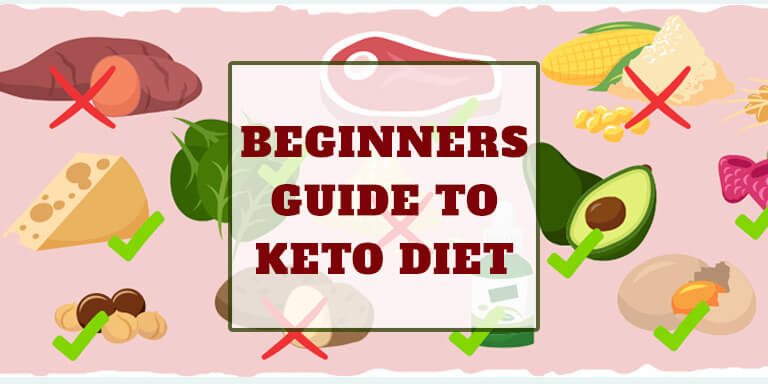Keto Diet Beginner’s Guide

The ketogenic diet, often referred to as the keto diet, is a low-carb, high-fat diet known for its potential to help with weight loss and improve various health markers. It involves reducing carbohydrate intake and replacing it with fat, which puts the body into a metabolic state called ketosis.
Table of Contents
How Does Ketosis Work?
Ketosis is a natural metabolic state where the body produces ketone bodies from fat, which are used as energy instead of glucose from carbohydrates. This shift in metabolism can lead to increased fat burning and improved energy levels for many individuals.
Benefits of the Keto Diet
- Weight Loss: By reducing carb intake, the keto diet can lead to significant weight loss, especially in the form of body fat.
- Controlled Blood Sugar: Keto may help regulate blood sugar levels, making it beneficial for people with diabetes or insulin resistance.
- Increased Energy: Many people report sustained energy levels throughout the day once they adapt to burning fat for fuel.
- Mental Clarity: Ketones can provide a steady source of energy to the brain, potentially improving cognitive function and focus.
Foods to Eat on Keto
- Healthy Fats: Avocado, olive oil, coconut oil, butter.
- Proteins: Meat, fish, eggs, cheese.
- Low-Carb Vegetables: Leafy greens, broccoli, cauliflower.
- Nuts and Seeds: Almonds, chia seeds, flaxseeds.
Foods to Avoid on Keto
- High-Carb Foods: Bread, pasta, rice, potatoes.
- Sugary Foods: Candy, soda, fruit juices.
- Processed Oils: Vegetable oils like soybean oil, canola oil.
Getting Started with the Keto Diet
- Calculate Your Macros: Determine your daily intake of carbs, protein, and fat based on your goals and body composition.
- Plan Your Meals: Focus on meals that are rich in healthy fats, adequate in protein, and low in carbs.
- Stay Hydrated: Drink plenty of water to help your body adjust to the changes in metabolism.
- Monitor Your Progress: Track your food intake and how you feel to adjust your diet as needed.
Potential Side Effects
- Keto Flu: Initially, some people may experience symptoms like headaches, fatigue, and irritability, often called keto flu. This typically passes within a few days to a week.
- Digestive Issues: Changes in fiber intake may affect digestion. Incorporating low-carb, high-fiber foods can help mitigate this.
Is Keto Right for You?
The keto diet can be highly effective for weight loss and improving certain health markers, but it may not be suitable for everyone. Consulting with a healthcare professional before starting any new diet is recommended, especially for those with underlying health conditions.
Conclusion
The keto diet offers a compelling approach to weight loss and health improvement through its focus on low-carb, high-fat eating. By understanding its principles, benefits, and potential challenges, you can make an informed decision about whether keto is the right choice for you.
Whether you’re looking to shed excess pounds or improve your overall well-being, the keto diet provides a structured framework to achieve your goals through dietary adjustments that support fat burning and metabolic efficiency.










